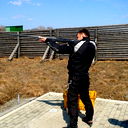Прочитайте следующие предложения, подчеркните в них глагол-сказуемое и определите его видовременную форму, указав его инфинитив. Переведите предложения на русский язык.
1. I now you are taking an advanced geography course now.
2. Like it or not, television has been the supreme holiday attraction ever since it upstaged the cinema by showing old films.
3. During the apprenticeship period the student will begin to earn money.
4. He will have left for Kiev by Saturday.
5. The Pilgrims arrived to America and founded their colony in 1020.
Домашние задания: Иностранные языки
Помогите с английским
Начнем с того, что в тексте ошибки ( я их выделила)
1. I KNOW you are taking an advanced geography course now.
2. Like it or not, television has been the supreme holiday attraction ever since it upstaged the cinema by showing old films.
3. During the apprenticeship period the student will begin to earn money.
4. He will have left for KYIV by Saturday.
5. The Pilgrims arrived IN America and founded their colony in 1020.
Перевод
1. Я знаю, что вы сейчас изучаете углубленный курс географии.
2. Нравится вам это или нет, но телевидение было главным праздничным развлечением с тех пор, как оно затмило кинотеатр, показывая старые фильмы.
3. Во время обучения студент начнет зарабатывать деньги.
4. К субботе он уедет в Киев.
5. Паломники прибыли в Америку и основали свою колонию в 1020 году.
1. to know
2. to like, to be. to upstage
3. to begin
4. to left
5. to arrive
1. I KNOW you are taking an advanced geography course now.
2. Like it or not, television has been the supreme holiday attraction ever since it upstaged the cinema by showing old films.
3. During the apprenticeship period the student will begin to earn money.
4. He will have left for KYIV by Saturday.
5. The Pilgrims arrived IN America and founded their colony in 1020.
Перевод
1. Я знаю, что вы сейчас изучаете углубленный курс географии.
2. Нравится вам это или нет, но телевидение было главным праздничным развлечением с тех пор, как оно затмило кинотеатр, показывая старые фильмы.
3. Во время обучения студент начнет зарабатывать деньги.
4. К субботе он уедет в Киев.
5. Паломники прибыли в Америку и основали свою колонию в 1020 году.
1. to know
2. to like, to be. to upstage
3. to begin
4. to left
5. to arrive
Наталья Коноплева
Спасибо большое
1. I know you are taking an advanced geography course now. know-Present Simple Active,to know; are taking-Present Continuous Active,to take
2. Like it or not, television has been the supreme holiday attraction ever since it upstaged the cinema by showing old films. has been-Present Perfect Active,to be; upstaged-Past Simple Active,to upstage
3. During the apprenticeship period the student will begin to earn money. will begin- Future Simple Active, to begin
4. He will have left for Kiev by Saturday. will have left- Future Perfect Active,to leave
5. The Pilgrims arrived to America and founded their colony in 1020. arrived,founded-Past Simple Active,to arrive,to found
2. Like it or not, television has been the supreme holiday attraction ever since it upstaged the cinema by showing old films. has been-Present Perfect Active,to be; upstaged-Past Simple Active,to upstage
3. During the apprenticeship period the student will begin to earn money. will begin- Future Simple Active, to begin
4. He will have left for Kiev by Saturday. will have left- Future Perfect Active,to leave
5. The Pilgrims arrived to America and founded their colony in 1020. arrived,founded-Past Simple Active,to arrive,to found


